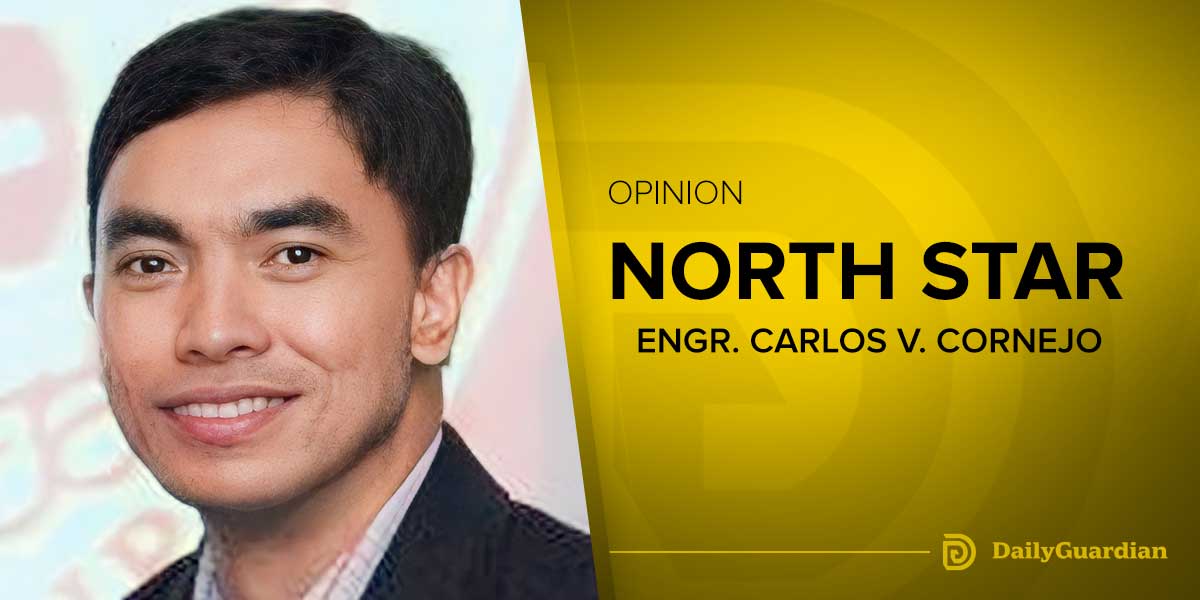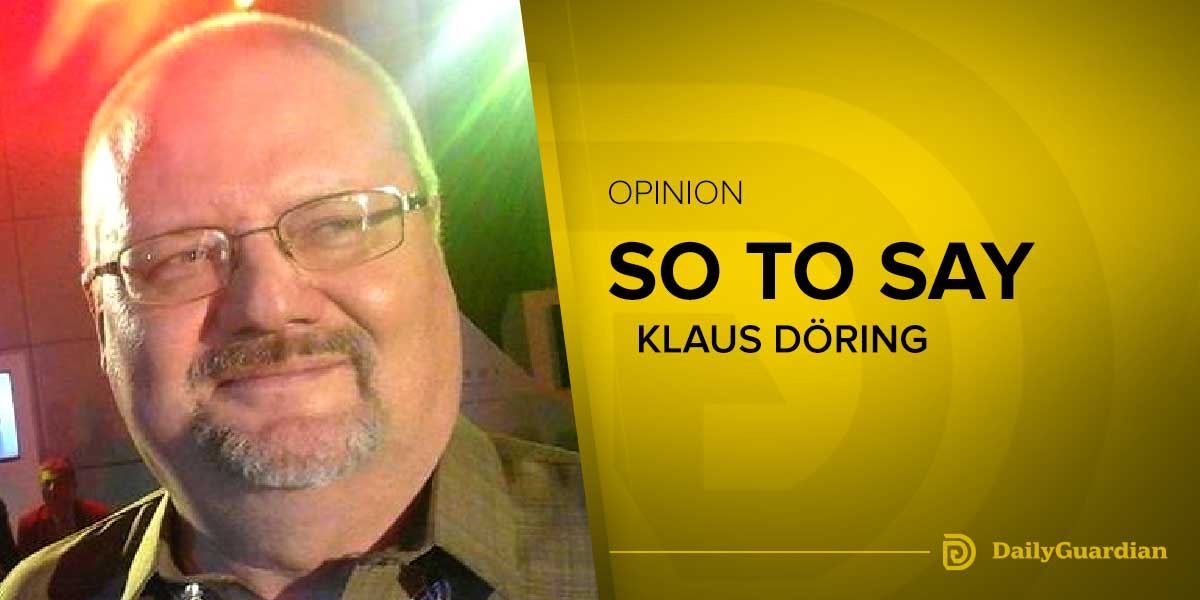By: Edmund S. Tayao
DEMOCRATIZATION is still essentially a work in progress in our country. We have yet to complete the process since not much change has actually taken place. The kind of government established by our colonial masters, even forcibly at that, sadly remains. The elites still control much of the country, its economy, and its politics.
We barely look up to our public institutions. We are in awe at the sight of many of our public officials, but we don’t necessarily trust and respect them. In fact, we tend to look at our officials as the public institution itself, not a representation of it. This means we assume that the public office is completely at the disposal of the official occupying it, instead of the office effectively defining what the official can and cannot do. This could have changed significantly if only EDSA 1986 was anywhere near a real revolution.
EDSA simply restored elites in power. People power happened because so much change was wanted and expected. And that was not the first time the people expressed a desire for real change. If we are to review politics in the country since our American colonizers left, we will not miss how the people have expressed their desire for a government that is truly Filipino, and therefore effective and responsive to the people.
THE CHANGE NARRATIVE
We have seen a Carlos Garcia who rallied Filipinos to patronize their own. He was succeeded by another nationalist, Diosdado Macapagal, who gave recognition to the true Philippine revolution by restoring the celebration of independence to June 12. This desire for good and truly independent government is the same reason why as early as the 1960s, there has been much public discussion for systemic change, with no less than statesman Claro M. Recto calling for a review of the existing presidential system.
Before, our choices were limited to just the elites and it remains so until now. I have always said that we have always been on the lookout for an alternative leader, someone who will do things differently from those we have already seen. Yes, we elected Joseph ‘Erap’ Estrada after Fidel V. Ramos (FVR) mainly because he was popular, but also because Estrada’s opponent was seen as someone who could not be trusted, plus the fact that there were other candidates who split the administration votes. Erap was deposed, Gloria Macapagal-Arroyo (GMA) took over but she left ignominiously because of the ‘Hello Garci’ elections scandal. Then-Senator Benigno ‘Noynoy’ Aquino III was seen as representing change and was thus elected president in 2010.
The result of the 2016 elections was consistent with this narrative. The message could not be clearer: the people wanted change. However, the people did not only ensure that the one who would take over was not with the outgoing president, which was the pattern as shown by the choices in previous presidential elections. More than that, the choice of the people was, to say the least, unorthodox, someone who stood out from the pack because he was different. Remember the run-up towards Election Day in 2016? As if in a thriller movie, many simply didn’t think a mayor could win as president. It seemed that up to the last minute, the voters were weighing their options.
I remember candidate Rodrigo Duterte saying in one of the debates before when asked what his plans were. He simply said, “gawin ko na lang mga sinasabi nila… bright naman lahat” (I will just do what the others said, they’re all bright). Now that he is the president, looking back, I thought he was probably saying then that the problem is not so much about bright ideas, but more of having to put these ideas into reality, and that’s precisely what he has concentrated on doing: implementation.
Much of what we heard the president planned to do when he was a candidate was basically to do housecleaning or acting on problems that should have long been addressed. Foremost is making the government more responsive by changing the attitude of those working in government, especially for those who have experienced dealing with government such as availing of various documents and services. People may have noticed how different they are treated now compared to before.
I went to get a National Bureau of Investigation (NBI) clearance recently and noticed that there is now just one clearance for both local and international employment. I asked the NBI staff attending to applicants why, thinking that perhaps this option was already indicated in the form. The reply was surprising: the president apparently went there in his early days in office and questioned why there have to be different forms when the database used was the same. The staff shared what the president said: that these different clearances only made it difficult and expensive for people looking for employment, so the change was effected.
The same reasoning was applied in many other government services. Passport is now good for 10 years, driver’s license for 5 years, and you can avail of many of these and similar services a lot faster now than before. Infrastructure development has continued regardless of whether it was initiated by previous administrations, but this time more aggressively, covering more areas in the country, not only in the National Capital Region (NCR) or nearby provinces; definitely not only in Mindanao or Davao where the president comes from. I remember some presidents before who discontinued projects mainly because it was started by previous administrations.
Many of these initiatives may be small but they’ve undoubtedly been felt by many. And the work continues without much fanfare and credit-grabbing, which seems to follow what the president campaigned for. It’s interesting how some politicians claimed credit for free education, for example, when it was part of the president’s platform. Universal healthcare is now also realized, and recently, even free train rides for students.
PEACE AGENDA
Peace is probably one agenda that the president has really pursued vigorously from day one. Remember how accommodating he was with the National Democratic Front (NDF), even appointing so many leaders associated with the left to show that he was really open to working with them to make the government work for the people. His approach in this regard showed he didn’t just understand the issues relevant to achieving peace but also knew the people and the organization engaged in it.
Take note of how additional members were identified and resulted in an expanded negotiating panel on both sides. It was clear the president knew how the rebels were organized and who the acknowledged leaders were. There were tangible milestones, particularly in the Comprehensive Agreement on Socio-Economic Reforms (CASER), basically the fundamental issues at the core of the armed struggle. Still, despite all these efforts, peace with the communist rebels remains elusive.
The peace process for the Bangsamoro, on the other hand, has been promising. Somehow this had been expected. How many peace agreements have already been concluded with the Moro fronts compared to the National Democratic Front (NDF)? As it is now, what has been agreed in the Framework Agreement on the Bangsamoro (FAB) and the Comprehensive Agreement on the Bangsamoro (CAB) is almost complete.
At first, some may have thought it would not reach the state that it is now, where a new Bangsamoro regional government is in place. When the organic law was being deliberated in Congress, as anticipated, there were interests that were simply out to prevent its realization. When it was clear that it was taking time, almost in an impasse, the President immediately stepped in and resolved the issues. One cannot miss the resolve when it comes to achieving peace in Mindanao.
Ending the drug menace is not as promising; it has been both a plus and a minus. The public’s mixed reaction clearly reflects this. Many now feel more secure in their communities, citing the significant decrease in drug-related crime, while some, on the other hand, are frightened by reports of extra-judicial killings (EJKs). There should be no doubt that the drug problem is not an easy issue to address. It is not only an internal security problem but also significantly a development issue. By now, of course, our political leaders have already learned to be more sensitive in dealing with the issue, much of it should reflect a better handle at addressing issues on EJKs.
Questions remain notwithstanding on why most of the arrests reported involve small-time drug dealers, some even just drug users. The case of Kian delos Santos may have already been resolved, but other similar cases remain. By the same token, reports of smuggled drugs in staggering amounts continue to spoil whatever gains have been made in the war against drugs.
Perhaps the most controversial overall is the China issue. Originally, the issue was limited to competing claims in the West Philippine Sea, but it has now morphed into a more comprehensive issue on an independent Philippine foreign policy. If only it could be objectively approached, it will be quite obvious that of all other issues, this is more complex as it is technical and therefore exacting. It then requires more sensitive and meticulous handling. It is not only because of domestic, partisan political considerations that the government has to speak as one on this issue; without a consolidated and or choreographed response, it might even send the wrong message to other countries that they should treat us less seriously.
Still and all, it is wrong to assume that we have become just a lackey of China. How long have we looked up to the United States as an ally, even as a savior? And how many times have we been disappointed? I remember, in 1991, when we were ‘supposedly’ renegotiating the terms of the US Military Bases Agreement, we were accused, in fact, insulted, of conducting “cash register” diplomacy. The point here is that we were never treated as even just close to an equal, and our diplomats and policymakers then saw this when they compared how the US was dealing with Egypt.
For me, the way the government deals with China is and should be mainly a message to the US and other countries with similar interests: that the Philippines will be dealing with them equally. At least this is how I see it, which is why recently the US suddenly became generous with their support for our defense system, something we didn’t see before. Have we ever expected that we would see a time when a missile system would be in place for the overall security capability of the country?
Much can still be had, there should be no doubt. What is clear however is that this president has done a lot more than what was expected of him in the time that he has been at the helm. By this time, efforts should be focused on the question of the legacy he will leave behind. We have to be asking ourselves now, especially our political leaders, what should we expect after the Duterte presidency if many of these changes cannot be institutionalized. For example, if the Constitution will not be revised, can we expect that the legitimacy of the Bangsamoro government, the constitutionality of the Bangsamoro Organic Law will no longer be questioned?





















